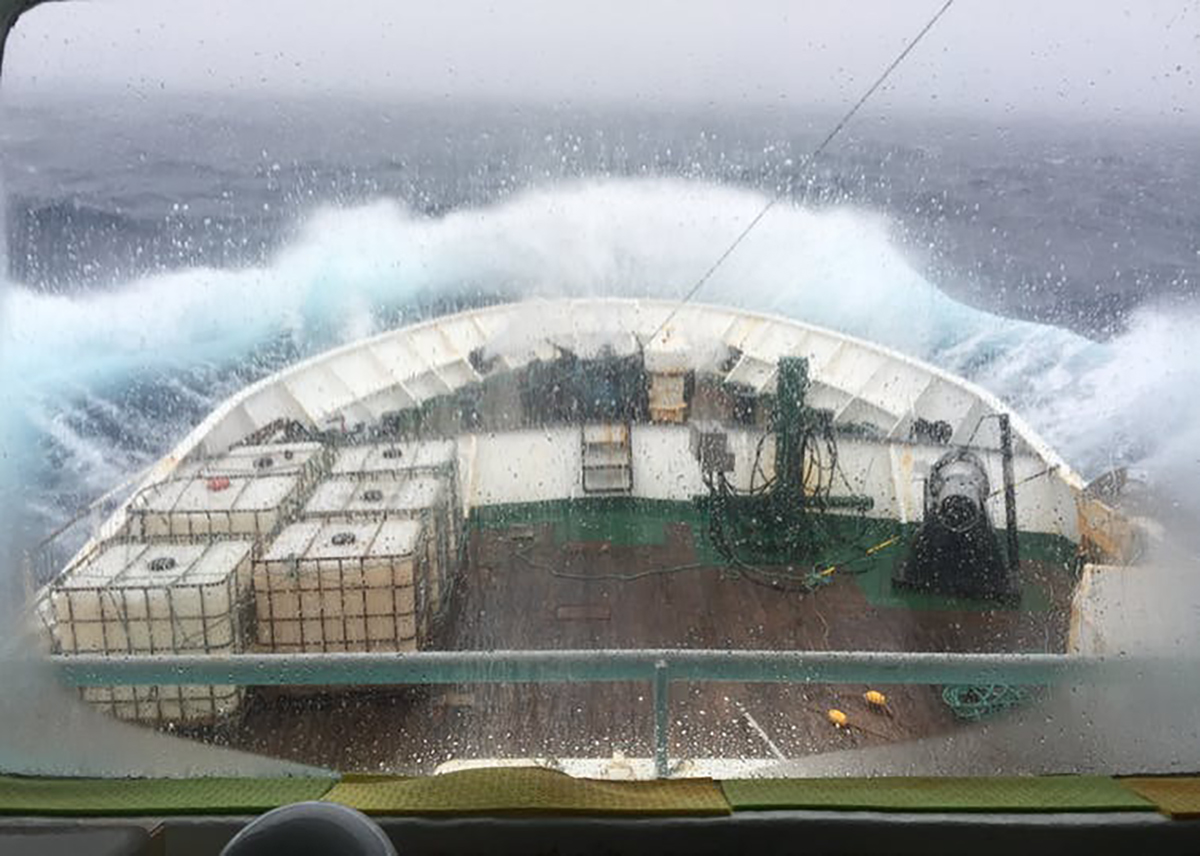One of the missing in the Newfoundland wreck was a marine biologist who worked as a control observer.
Roberto Sarralde Vizuete, Spanish Institute of Oceanography (IEO – CSIC)
The terrible accident suffered by the fishing vessel Villa de Pitanxo in the waters of Newfoundland made me relive the time when I boarded the same fleet many years ago as a scientific observer.
One of the missing, whose body has not been recovered, is Francisco Manuel Navarro Rodríguez, a marine biologist from Gran Canaria who worked as a control observer on this campaign.
Anyone who has boarded a commercial fishing boat invariably thinks the same: the price paid for the fish is not enough to compensate for the harsh conditions that this work entails.
Tradition, passion and need intertwine to ensure that this ancestral profession continues and allows us to have fish in our squares and supermarkets.
The tough international campaigns
Conditions are more difficult in fisheries that take place outside our jurisdictional waters. Especially in those where weather conditions are extremely adverse, such as those managed by the Northwest Atlantic Fisheries Organization (NAFO), area where the wreck occurred.
These campaigns last from three to six months, depending on catches and the boat’s storage capacity. There follows a break of about a month for most of the crew. A time that is barely enough to see the children’s progress, solve family problems or invest a little more in the house they are building before returning to the boarding and rest wheel.
Most of its life takes place at sea. Demolishing physical and mental work. The crew works in continuous shifts, resting when possible. And layer days, when the sea does not allow work, are the worst, as it is not possible to fall asleep due to the continuous and arbitrary movement of the ship.
The work of scientific observers
The boarding of scientific observers added difficulties. These are people who are not normally rooted in the fishing tradition, nor in the boat they had to work on, and who are unlikely to return at the end of the campaign. Nor to the crew he will have to live with for that long period of time.
Many of the observers on board are women who work in a traditionally male environment. It is no less true that, in general, for them, unlike the usual crew, boarding is a transitory way of earning a living, gaining professional experience and experiencing first-hand the passion that led them to choose a career in marine biology. .
The work of scientific observers is crucial to know both the status of exploited populations and the potential impact they may have on other species and the ecosystem.
The data provided by sampling on board allows us to carry out an assessment of marine resources that will allow us to regulate fisheries and, in this way, try to avoid overexploitation and develop conservation measures that limit that impact.
control marine resources
The scientific observer on board is no longer seen as a stranger, treated with great distrust – his presence being associated with greater control of his activities and possible fines in case of non-compliance with the regulation –, to another member of the crew. This verified that his work is independent and is limited to advancing knowledge of the biology of the species involved.
I still think about our work today and the fingers of my hands that I had to continually shake every time I opened a Sole to see their sex, the state of maturity of their gonads or when collecting samples for further study in the laboratory, due to the temperature at which they arrived, close to freezing. But it more than made up for the experience of living on board and the knowledge that our work would contribute to a better understanding of the state of living marine resources and their environment.
Faced with the Villa de Pitanxo accident, the same question haunts us again, which seems impossible to answer: what would be the fair price that should be paid in the purchase of fish to compensate for this tremendous effort and sacrifice of thousands of families in which some member is working aboard the fishing fleet?
Roberto Sarralde Vizuete, Biologist. Department of Distant Fisheries, IEO-CSIC, Spanish Institute of Oceanography (IEO – CSIC)
This article was originally published on The conversation. read the original.
